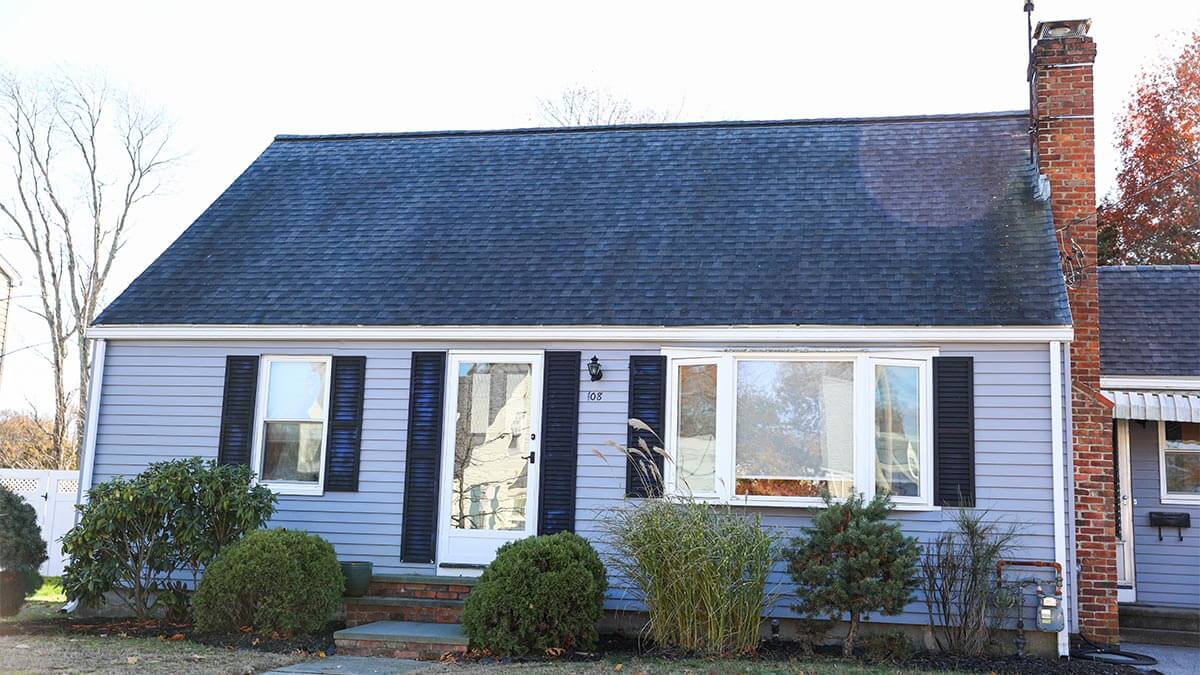Trying to sell a home in Houston that is distressed from fire damage, flooding, or neglect, can be challenging. As a homeowner of a distressed property, you’ll need to consider legal and financial implications, how to prepare your distressed home for sale, and what the best selling strategy is for you to make an effective sale.
One effective strategy is working with iBuyer.com. We can provide a fast, hassle-free sale, regardless of the condition your home is in. While there are other cash-offer companies in Houston, we stand out because we provide fair offers and quicker sale times.
Selling a Distressed Home in Houston
Compare Cash Offers from Top Home Buyers. Delivered by Your Local iBuyer Certified Specialist.
One Expert, Multiple Offers, No Obligation.
Types of Distressed Homes
Flooded Houses:
Flooding can cause extensive damage to a property, impacting its structural integrity and leading to mold and mildew growth. Flooded homes are typically damaged by environmental disasters such as hurricanes, like Hurricane Harvey or Ike. This damage can also be the result of more minor issues, such as a plumbing failure. Flooded houses often have weak foundations, warped flooring, and damaged walls or installation.
To sell a home that’s been damaged from flooding, you’ll need to make some necessary repairs. These can include mold removal, water extraction, structural repairs, replacing damaged materials, and installing preventative measures, such as sump pumps, waterproofing basements, and new drainage material.
Fire-Damaged Houses:
Fire damage can range from minor smoke damage to complete destruction of a home, making it challenging to sell without making significant repairs. Electrical faults, accidents in the kitchen, and natural causes, such as lightning or neighboring property fires, can be the primary reasons for fire-damaged homes. This type of damage primarily affects the homes’ structure, and the permeation of walls or fixtures. In some cases, even the efforts to maintain a home fire can lead to water and fire damage.
Charred structures, such as burnt beams, walls, and flooring, and any other material affected by smoke stains or odors need to be removed and replaced. This also includes electrical, plumbing, and HVAC systems. Significant fires may even require rebuilding sections of the home, such as framing, roofing and interior finishes.
Other Distressed Properties:
In addition to flood and fire damage, foundational issues, roof damage, and neglect can render a property distressed.
- Foundation Issues: Cracks, settling, and other foundation problems can compromise a home’s structure. These repairs can be costly, and often require professional assessment and remediation.
- Roof Damage: Leaks, missing shingles, and structural damage to the roof can lead to further deterioration of the property. Water intrusion from roof damage can lead to mold and mildew, which can further create health concerns.
- Neglect: Long-term neglect can result in significant cosmetic and structural issues, such as peeling paint, broken windows, and overgrown landscaping. Cleaning, decluttering, and repairing years of neglect can be labor-intensive and expensive.
Legal and Financial Considerations
When selling a distressed home, you’ll need to understand the legal and financial aspects involved as it will impact your selling process. Filing insurance claims, making disclosures of the damage in the selling process, and the impact the damage will have on your property value should be important considerations for distressed home owners.
Insurance Claims: How to File
- Contact Your Insurance Company: Notify your insurer as soon as possible after the damage occurs. Provide them with all necessary information and documentation.
- Document the Damage: Take detailed photos and videos of the damage. Make an inventory of damaged items and structures.
- Meet with the Adjuster: Your insurance company will send an adjuster to assess the damage. Be present during this visit to point out all areas affected.
- Review the Settlement Offer: Once the adjuster’s report is complete, your insurer will provide a settlement offer. Review it carefully and negotiate if necessary to ensure it covers all damages.
- Timeframe: This process can take several weeks to months, depending on the extent of damage and efficiency of your insurer.
- Payment: Funds may be disbursed in stages, especially if the repairs required are significant.
Disclosure Requirements
Anytime someone is selling their home, they need to make full disclosure to the buyers of any known issues. Failure to do so can lead to legal complications down the line. In Texas, sellers of distressed homes are required to disclose any previous floor or fire damage, the cause of the damage, extent of the repairs, and any issues that remain from the damage.
Impact on Property Value
The value of a distressed home is typically lower than that of an undamaged property, so you’ll need to prepare for offers below market value. This reduction in value may occur because buyers are weary of potential hidden issues and costs of future repairs, while investors will hope to bargain on the fact it is a damaged property.
You may consider getting a professional appraisal to help you set a realistic and competitive price. If you have a real estate agent, they may conduct a Comparative Market Analysis (CMA) to determine an appropriate price based on similar properties in the area that have recently sold.
Preparing a Distressed House for Sale
Assessment and Evaluation
Start by evaluating the extent of damage to your home. Consider hiring a professional inspector to thoroughly assess the damage, identify less obvious problems, and give you a clear understanding of the condition of the property. Additionally, it’s important to identify and repair critical issues that may deter potential buyers, such as structural damage, mold, or major electrical and plumbing problems. This assessment will help you decide whether to repair the property or sell it as-is.
Making Repairs v. Selling As-Is
- Cost vs. Benefit Analysis: Evaluate the cost of repairs against the potential increase in sale price. Sometimes, making minor repairs can significantly boost your home’s appeal and value.
- Selling As-Is: If repairs are too costly or time-consuming, consider selling the property as-is. This can attract investors looking for renovation projects and save you the hassle of extensive repairs.
Cleaning and Staging
Even distressed properties can benefit from basic cleaning and staging. A well-presented home can attract more buyers and better offers.
- Remove Debris and Clutter: Clear out any debris, personal belongings, and unnecessary items. This will allow potential buyers to focus on the property’s potential rather than its current state.
- Deep Clean: Perform a deep clean of the property, including floors, windows, and general surfaces. Pay special attention to areas affected by damage to remove odors and stains.
- Staging: Use minimal, neutral decor to highlight the property’s features and arrange furniture to showcase space potential.
- Curb Appeal: Improve the exterior of your home with simple landscaping, fresh paint, and clean walkways.
Selling Strategies
If you’re selling a distressed property in Houston, a traditional selling approach will take more time. If you need to avoid the time and cost of making repairs, you may consider selling as-is. If you’re in need of a fast and practical approach to take a distressed property off your hands, you may consider a cash buyer such as iBuyer.com.
- Traditional Sale: The traditional selling approach will require the help of an agent who has high ratings and experience in Houston’s market. Your agent should assist you with negotiations, price your property based on a CMA, facilitate your online marketing, and conduct open houses.
- As-Is: Selling the house in its current condition without making any repairs can be an efficient option, especially if the property requires extensive work. With an as-is sale, you’ll likely attract buyers or investors interested in renovation projects.
- iBuyer: iBuyer.com is a simple alternative for those having difficulty selling a distressed home. Our platform utilizes technology to evaluate home value and provide instant cash offers, allowing for closings in as little as a week. We can help eliminate the need for making repairs, hosting open houses, and dealing with the time-consuming complexities of traditional sales. Simply provide us a few details about your property, receive an offer, and accept if the offer feels right for you. iBuyer.com can expedite the selling process to provide you an opportunity to receive an offer on your distressed home.
Emotional Considerations
Selling a distressed home can emotional when the property holds sentimental value, or the damage incurred is associated with other occurrences of loss.
- Coping: Allowing yourself to process the emotions associated with a distressed home is crucial. Staying organized and taking breaks to step away from the process are going to be important for you to stay focused and avoid getting over-whelmed.
- Professional Support: Seeking professional advice can provide reassurance and clarity during the decision-making process, whether it be from a real estate professional, attorney, or counselor.
- Support Groups: Talking to a counselor about your emotions can help manage stress and reduce anxiety. Joining a support group will allow you to share your experiences with others who may have faced similar challenges, providing reassurance and practical advice.
Sell Your Distressed Home in Houston
Selling a distressed home in Houston involves navigating a range of challenges. Understanding the degree of damage, the legal and financial implications, and how to prepare a distressed home for sale, are important to aspects to selling your home effectively.
If you need to sell your distressed home quickly in Houston, TX, consider leveraging the benefits of iBuyer.com. For a fast, efficient, and hassle-free sale, visit iBuyer.com today.
Additionally, if you need to find “we buy houses“ companies in Houston, TX, our platform can provide the support and resources you need to achieve a successful transaction.
Instant Valuation, Confidential Deals with a Certified iBuyer.com Specialist.
Sell Smart, Sell Fast, Get Sold. No Obligations.
Reilly Dzurick is a seasoned real estate agent at Get Land Florida, bringing over six years of industry experience to the vibrant Vero Beach market. She is known for her deep understanding of local real estate trends and her dedication to helping clients find their dream properties. Reilly’s journey in real estate is complemented by her academic background in Public Relations, Advertising, and Applied Communication from the University of North Florida.




